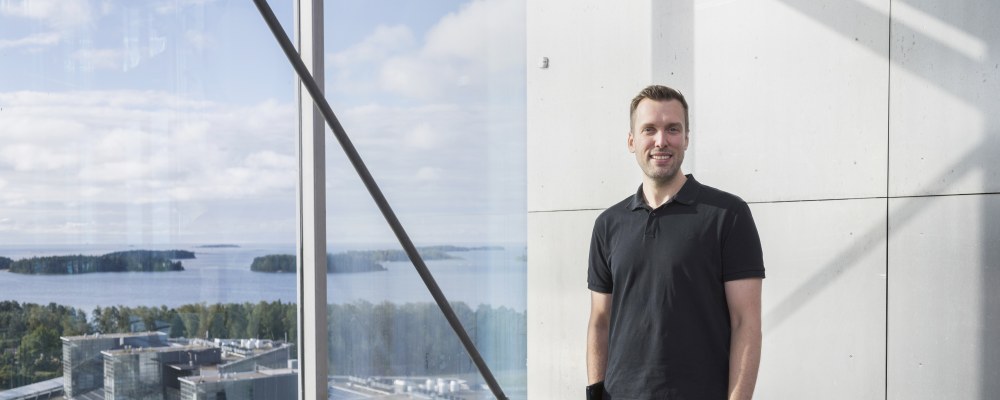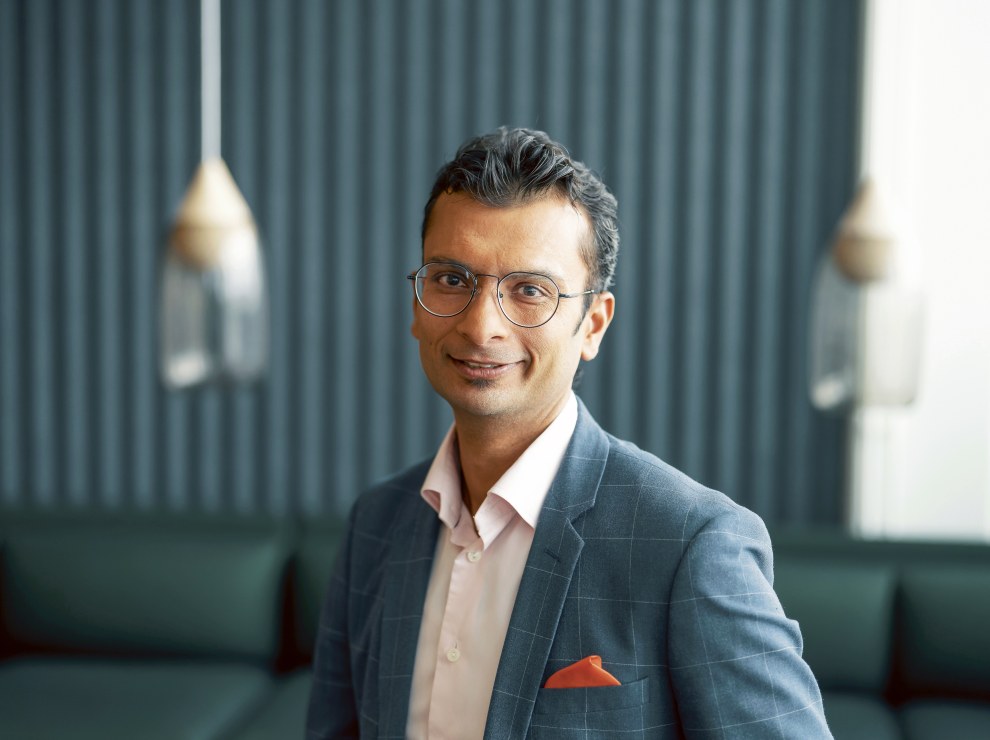
According to a new AI study by Academic Engineers and Architects in Finland TEK and the Union of Professional Engineers, management of artificial intelligence in Finland is largely concentrated in the hands of an AI elite – primarily men aged 40 to 49.
This AI elite mainly holds management, middle management or highly demanding expert roles in IT and is responsible for implementing AI tools in Finnish tech workplaces.
They use AI more frequently and in more diverse ways than others. They have also received significantly more AI-related supplementary training and retraining. They feel that AI has made them more productive at work.
According to Mikko Särelä, expert for industrial and innovation policy at TEK, AI should be for everyone – not just the elite.
“It’s high time to include all employees. AI development must not be left to a narrow group of experts. We need people of different ages, genders, and backgrounds. Only diverse participation ensures that AI solutions serve society fairly.”
Särelä also believes it would be easy for the AI elite to share their expertise already.
“It’s important for companies to identify early AI adopters within their staff and give them opportunities to share experiences, train others, and help the company choose effective AI tools,” Särelä says.
The study also reveals that AI has created new needs in the workplace. Many employees are confused about AI practices at work and feel they need more training.
“Just over half of respondents said that AI usage guidelines exist at their workplace, but they may not be sufficient. There’s also a need for additional training or retraining,” says Susanna Bairoh, TEK’s Research Manager.
The TEK magazine found out how the elevator and escalator company Kone and the measurement instrument manufacturer Vaisala have included their personnel in the development of artificial intelligence.
Kone encourages discussion and experimentation
Kone, a global manufacturer of elevators and escalators, has built AI applications as tools for maintenance and sales. These two are mentioned by Mikko Mattila, who is responsible for Kone's AI lighthouse team. There may be other applications as well, but they shall remain secret for now.
The Technician Assistant application helps in elevator and escalator maintenance.
"It contains a lot of our own valuable data, maintenance manuals and elevator maintenance history. The sensors provide information that could be difficult to apply with ready-made AI tools."
The Tenderlens application, on the other hand, has been created for sales customer documentation and for speeding up customer offers and requests for quotation.
Kone does not build the language models for AI applications itself but collaborates with partner companies. When generative AI entered the market, all IT consulting firms and technology partners wanted to get in on the development, Mattila says.
"The Kone brand came in handy, as everyone wanted to work with us. We didn't know who was the best fit, so we were careful not to put all our eggs in one basket. We must keep our doors open and do some experiments with everyone."
Chance played its part
Mikko Mattila made first contact with generative artificial intelligence on a business trip to Stockholm in April 2023. However, the purpose of the trip was not AI.
"I met some technology companies there by chance, and we started talking that this has potential for something bigger. At the time, I didn't understand how AI works and what prompt engineering means, for example."
That same spring, the Chief Innovation Officer at Kone urged everyone to explore the possibilities of artificial intelligence.
"At the time it didn't feel like we were the world's first company to do so, but we rode the AI wave and weren't behind the curve either," Mattila says.
Development began quickly. Mattila remembers having meetings with partner companies from a summer cottage. In the end, two exercises were launched.
"When I returned to work after the break, the first demos were ready. Before Christmas, we had one that could be sent to test users."
Everybody wants in
Kone got excited about the new technology. According to Mattila, everyone wanted to talk and experiment, which lead to the creation of the Kone AI Community discussion group.
"The first meeting was held in August 2023. All those who wanted to talk about AI at Kone were invited to join. It grew rapidly, and we had over 1,000 members by the turn of the year."
In winter 2023–24, the lighthouse team was established with Mattila at the helm, and recruitment was opened in summer 2024. There were many projects; everyone wanted to try something new, Mattila says.
"Administratively, we didn't set up anything big but rather encouraged people to discuss and experiment. Then, we started to see some solid ideas. We thought about business benefits, not just doing AI for the sake of AI."
In addition to its own applications, Kone uses Microsoft Copilot and other ready-made solutions.
"Companies like us don't benefit from developing the application ourselves if it's based entirely on common data. So much is invested globally in AI development that you really shouldn't do everything yourself."
Kone applications revolutionize business
The applications built by Kone are unique and revolutionary in terms of business, Mattila says. RAG and prompt engineering are key terms in the development work.
RAG stands for Retrieval-Augmented Generation, a machine learning model that combines information retrieval and generative text production. After receiving a question, the model searches for relevant and up-to-date information in the networks, which it then combines with its own knowledge base.
Prompt engineering, in turn, is the process of optimising inputs to AI systems, resulting in better and more accurate answers.
"With commonly used protocols and data sources for other tools, it's easy to make applications of these. They are relatively simple and quick to set up."
"It's more about showing something sensible to the users, and they can tell you whether it's actually useful or not. We don't really know how the AI comes up with the answers either."
According to Mattila, AI applications can create wow effects quickly. More time is spent on learning about the needs of users and developing applications to meet them.
"No matter the kind of software you are developing, it's easy to make the first guess about which direction to go and then change the course."
Benefits make it worth using
Kone's maintenance assistant is not yet used by the entire maintenance staff, but it is technically already possible, Mattila says.
"We first gave it to a limited user group in Italy. Soon, we realised that workers outside the group started calling their friends, asking the assistant how it would solve this and that problem. They started sending screenshots of its responses."
Kone's national subsidiaries have requested more support for AI applications. According to Mattila, the best feedback came from France.
"I talked to someone in France who used the word 'we', as in 'we developed'. It's a big deal for someone in product development. We usually hear that something was developed deep in our cubicles in Espoo, but this was different – we have done this together."

Vaisala brought everyone along
In our video interview with Girish Agarwal, Chief Digital & Information Officer at the measurement technology company Vaisala, the company's AI agent Taika appears on the screen. Taika is an assistant for the employees, helping them with meeting tasks, transcribing and taking notes, among other things. This time, Taika gets a break.
According to Agarwal, AI is a natural extension of digital development in measurement technology. Agarwal divides Vaisala's AI projects into four. They are based on commitment, adoption and learning.
"We design AI training programmes for different professional groups, such as product managers, HR, financial management and sales."
For employees, Vaisala builds tools that save time and increase efficiency and productivity, Agarwal says. Taika is an example of such tool.
AI agents have been built to support sales, and Vaisala also offers AI technology to customers as part of its products.
According to Agarwal, Vaisala's work with artificial intelligence also began with selecting a partner. Their applications are built on existing language models.
"We buy data and train the language models. In some cases, we have partners with ready-made platforms for AI agents or RAG platforms. In others, we only use pre-existing standard applications."
Vaisala decided not to create one team for AI projects that takes care of everything.
"We want AI to be included in everyday operations; everyone should be aware of what it can do. Support services are, of course, centralised."
Vaisala's first AI agent, Taika, was launched in November last year. The employees have been excited about the opportunities offered by AI, Agarwal says.
"Of the 2,500 employees, 1,800 have registered. Every week since the launch, there have been some 13,000 transactions involving AI. Only 0.6 per cent of the discussions have resulted in the 'thumbs down' feedback.
"I'm not satisfied with that. If someone gives the thumbs down, it means they are very irritated."
Next level in people's hands
According to Agarwal, the number of AI agents will increase exponentially in the near future. In addition to the number of applications, the readiness of employees to work with AI agents makes companies stand out.
"The next level will be reached by people working with AI, who will make them more efficient and smarter and decide where and how they should be applied."
According to Agarwal, the challenge of AI development is scalability and production use. The work is currently being done in a very small part of the organisation's processes.
"In order to scale, you must be good at change, and it applies to people, organisations and technology alike.
"At Vaisala, we can take one part and make small changes here and there, but we cannot make a comprehensive change."
Agarwal mentions EU regulation as one of the problems in AI development. Societies and infrastructures are not yet ready for change.
"There's so much regulation. It's needed, but sometimes it slows us down. We punish technology when societies and organisations are not ready."
People may also act as a brake on development, Agarwal says.
"There's still a lack of clarity. People are wondering what this means for me. Am I still relevant?"
Agarwal is not at all worried about AI replacing people.
"We just need to learn how to work with these devices."
Anssi Koskinen
About the study
The AI study was conducted as part of TEK's and the Union of Professional Engineers’ annual labor market surveys, using a web questionnaire in October–November 2024. It examined AI usage and perceptions in Finnish tech workplaces. Around 18,900 responses were received, with a response rate of 21%. Of the respondents, 77% were men and 23% women.